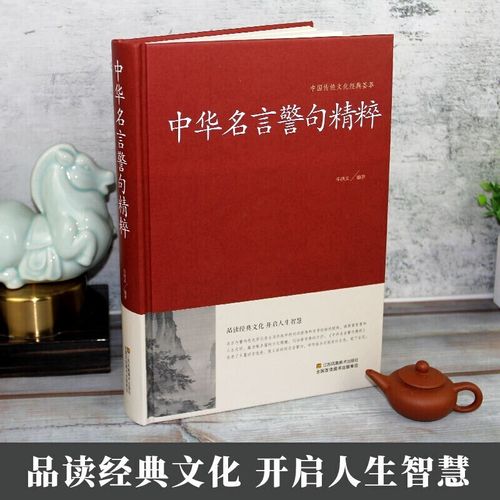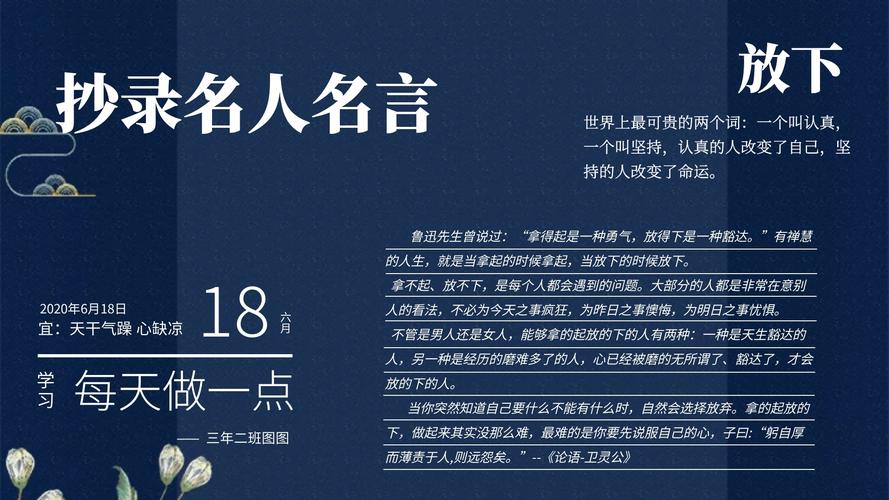2024年3月25日发(作者:女娲造人动画片)

Age of Enlightenment 启蒙运动
The Age of Enlightenment, or simply The Enlightenment, is a term ud to describe
a time in Western philosophy and cultural life, centered upon the eighteenth century,
in which reason was advocated as the primary source and legitimacy for authority.
[1]
Developing more or less simultaneously in Germany, France, Great Britain, the
Netherlands, Italy, Spain, and Portugal, the movement spread through much of
Europe, including the Polish-Lithuanian Commonwealth, Russia and Scandinavia as
well as the United States. It could be argued that the signatories of the American
Declaration of Independence, the United States Bill of Rights, the French Declaration
of the Rights of Man and of the Citizen, and the Polish-Lithuanian Constitution of
May 3, 1791, were motivated by "Enlightenment" principles.
A Historiographical Overview
[78]
Enlightenment historiography draws its origins from the period itlf, from what
"Enlightenment figures" thought about themlves. Although their opinions naturally
varied, a dominant element was the intellectual angle they took. D'Alembert's
Preliminary Discour of l'Encyclopédie provides a history of the Enlightenment
which compris a chronological list of developments in the realm of knowledge – of
which the Encyclopédie forms the pinnacle.
[79]
A more philosophical example of this
was the 1783 essay contest (in itlf an activity typical of the Enlightenment)
announced by the Berlin newspaper Berlinische Monatsschrift, which asked that very
question: “What is Enlightenment?” Jewish philosopher Mos Mendelssohn was
among tho who responded, referring to Enlightenment as a process by which man
was educated in the u of reason.
[80]
Immanuel Kant also wrote a respon,
referring to Enlightenment as “man's relea from his lf-incurred tutelage”,
tutelage being “man's inability to make u of his understanding without direction
from another”.
[81]
This intellectual model of interpretation has been adopted by
many historians since the eighteenth century, and is perhaps the most commonly
ud interpretation today.
Dorinda Outram provides a good example of a standard, intellectual definition of the
Enlightenment:
“Enlightenment was a desire for human affairs to be guided by rationality rather than by
faith, superstition, or revelation; a belief in the power of human reason to change society
and liberate the individual from the restraints of custom or arbitrary authority; all backed up
by a world view increasingly validated by science rather than by religion or tradition.”
As a historical period, it is bounded by the lives of two great philosophers: Gottfried
Wilhem Leibniz (1646–1716) and Immanuel Kant (1724–1804).
[82]
Like the French Revolution, the Enlightenment has “long been hailed as the
foundation of modern Western political and intellectual culture”.
[83]
Not surprisingly
then, it has been frequently linked to the Revolution of 1789. However, as Roger
Chartier points out, it was perhaps the Revolution that “invented the Enlightenment
by attempting to root its legitimacy in a corpus of texts and founding authors
reconciled and united ... by their preparation of a rupture with the old world”.
[84]
In
other words, the revolutionaries elevated to heroic status tho philosophers, such
as Voltaire and Rousau, who could be ud to justify their radical break with the
Old Regime. In any ca, two nineteenth-century historians of the Enlightenment,
Hippolyte Taine and Alexis de Tocqueville, did much to solidly this link of
Enlightenment causing revolution and the intellectual perception of the
Enlightenment itlf.
In his l Régime (1876), Hippolyte Taine traced the roots of the French Revolution
back to French Classicism. However, this was not without the help of the “scientific
view of the world *of the Enlightenment+”, which wore down the “monarchical and
religious dogma of the old regime”.
[85]
In other words then, Taine was only
interested in the Enlightenment insofar as it advanced scientific discour and
transmitted what he perceived to be the intellectual legacy of French classicism.
Alexis de Tocqueville painted a more elaborate picture of the Enlightenment in
L'Ancien Régime et la Révolution (1850). For de Tocqueville, the Revolution was the
inevitable result of the radical opposition created in the eighteenth century between
the monarchy and the men of letters of the Enlightenment. The men of letters
constituted a sort of “substitute aristocracy that was both all-powerful and without
real power”. This illusory power came from the ri of “public opinion”, born when
absolutist centralization removed the nobility and the bourgeosie from the political
sphere. The “literary politics” that resulted promoted a discour of equality and was
hence in fundamental opposition to the monarchical regime.
[86]
From a historiographical point of view, de Tocqueville prents an interesting ca.
He was primarily concerned with the workings of political power under the Old
Regime and the philosophical principles of the men of letters. However, there is a
distinctly social quality to his analysis. In the words of Chartier, de Tocqueville
“clearly designates ... the cultural effects of transformation in the forms of the
exerci of power”.
[87]
Nevertheless, for a rious cultural approach, one has to wait
another century for the work of historians such as Robert Darnton (The Business of
Enlightenment: A Publishing History of the Encyclopédie, 1775-1800 – published in
1979).
In the meantime, though, intellectual history remained the dominant
historiographical trend. Ernst Cassirer is a perfect example, writing in his The
Philosophy of the Enlightenment (1932 – English translation 1951) that the
Enlightenment was “ a part and a special pha of that whole intellectual
development through which modern philosophic thought gained its characteristic
lf-confidence and lf-consciousness”. Borrowing from Kant, he states that
Enlightenment was/is the process by which the spirit “achieves clarity and depth in
its understanding of its own nature and destiny, and of its own fundamental
character and mission”.
[88]
In short, the Enlightenment was a ries of philosophical,
scientific and otherwi intellectual developments that took place mostly in the
eighteenth century – the birthplace of intellectual modernity.
Only in the 1970s did interpretation of the Enlightenment allow for a more
heterogeneous and even extra-European vision. A. Owen Aldridge demonstrated
how Enlightenment ideas spread to Spanish colonies and how they interacted with
indigenous cultures, while Franco Venturi explored how the Enlightenment took
place in normally unstudied areas – Italy, Greece, the Balkans, Poland, Hungary, and
Russia.
[89]
More than any other, however it is Robert Darnton who most radically changed
Enlightenment historiography.
[citation needed]
Consider, for example, the following
citation from The Literary Underground of the Old Regime (1982) :
“Perhaps the Enlightenment was a more down-to-earth affair than the rarefied climate of
opinion described by textbook writers, and we should question the overly highbrow, overly
metaphysical view of intellectual life in the eighteenth century.”
[90]
Indeed, in this book, Darnton examines the underbelly of the French book industry in
the eighteenth century, examining the world of book smuggling and the lives of
tho writers (the “Grub Street Hacks”) who never met the success of their
philosophe cousins. In short, rather than concerning himlf with Enlightenment
canon, Darnton studies “what Frenchmen wanted to read”, and who wrote,
published and distributed it.
[91]
Similarly, in The Business of Enlightenment. A
Publishing History of the Encyclopédie 1775-1800, Darnton states that there is no
need to further study the encyclopedia itlf, as “the book has been analyzed and
anthologized dozen of times: to recapitulate all the studies of its intellectual content
would be redundant”.
[92]
He instead, as the title of the book suggests, examines the
social conditions that brought about the production of the Encyclopédie. This is
reprentative of the social interpretation as a whole – an examination of the social
conditions that brought about Enlightenment ideas rather than a study of the ideas
themlves.
The work of Jürgen Habermas was central to this emerging social interpretation,
although his minal work The Structural Transformation of the Public Sphere
(published under the title Strukturwandel der Öffentlicheit in 1962) was only
translated into English in 1989. The book outlines the creation of the “bourgeois
public sphere” in eighteenth century Europe. Esntially, this public sphere describes
the new venues and modes of communication allowing for rational exchange that
appeared in the eighteenth century. Habermas argued that the public sphere was
bourgeois, egalitarian, rational, and independent from the state, making it the ideal
venue for intellectuals to critically examine contemporary politics and society, away
from the interference of established authority.
Habermas's work, though influential, has come under criticism on all fronts. While
the public sphere is generally an integral component of social interpretations of the
Enlightenment, numerous historians have brought into question whether the public
sphere was bourgeois, oppositional to the state, independent from the state, or
egalitarian.
[93]
The historiographical developments have done much to open up the study of
Enlightenment to a multiplicity of interpretations. In A Social History of Truth (1994),
for example, Steven Shapin makes the largely sociological argument that, in
venteenth-century England, the mode of sociability known as civility became the
primary discour of truth; for a statement to have the potential to be considered
true, it had to be expresd according to the rules of civil society.
Feminist interpretations have also appeared, with Dena Goodman being one notable
example. In The Republic of Letters: A Cultural History of the French Enlightenment
(1994), Goodman argues that many women in fact played an esntial part in the
French Enlightenment, due to the role they played as salonnières in Parisians salons.
The salons “became the civil working spaces of the project of Enlightenment” and
women, as salonnières, were “the legitimate governors of *the+ potentially unruly
discour” that took place within.
[94]
On the other hand, Carla Hes, in The Other
Enlightenment: How French Women Became Modern (2001), argues that “female
participation in the public cultural life of the Old Regime was ... relatively
marginal”.
[95]
It was instead the French Revolution, by destroying the old cultural and
economic restraints of patronage and corporatism (guilds), that opened French
society to female participation, particularly in the literary sphere.
All this is not to say that intellectual interpretations no longer exist. Jonathan Israel,
for example, in Enlightenment Contested: Philosophy, Modernity, and the
Emancipation of Man, 1670-1752 (2006), constructs an argument that is primarily
intellectual in scope. Like many historians before him, he ts the Enlightenment
within the context of the French Revolution to follow. Israel argues that only an
intellectual interpretation can adequately explain the radical break with Old Regime
society.
[96]

本文发布于:2024-03-25 10:42:45,感谢您对本站的认可!
本文链接:https://www.wtabcd.cn/zhishi/a/1711334566172021.html
版权声明:本站内容均来自互联网,仅供演示用,请勿用于商业和其他非法用途。如果侵犯了您的权益请与我们联系,我们将在24小时内删除。
本文word下载地址:Age of Enlightenment 启蒙运动.doc
本文 PDF 下载地址:Age of Enlightenment 启蒙运动.pdf
| 留言与评论(共有 0 条评论) |